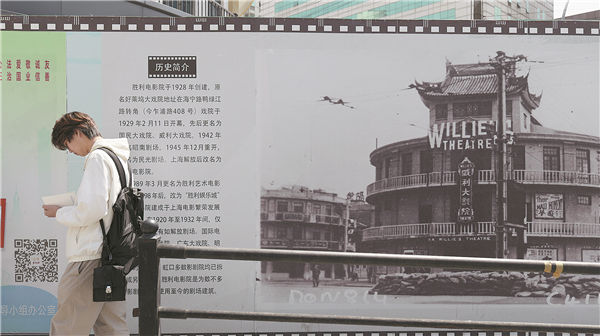

In 1922, an associate and business partner of his, named Goldenberg, was assassinated after getting involved in what was believed to be a copyright conflict with Hollywood.
According to the findings of the Spanish scholar, Ramos had acquired the long-term rights to screen a series of Hollywood movies at a very low price.
One was the Charlie Chaplin film The Kid, which was a massive hit with locals in Shanghai.
United Artists, the legal representative of Hollywood filmmakers, allegedly refused to acknowledge Ramos' acquisition of the copyright and started an anti-piracy campaign in Tokyo and Shanghai. Goldenberg was believed to be Ramos' representative in the dispute.
In the years that followed, Ramos leased most of his cinemas out to other people to manage.
He eventually sold his business, left China and returned to Spain in 1931.
He founded Rialto Cinema in Madrid and managed it till his death in 1941.
Among his lessees in Shanghai were Zhang Shichuan, a pioneering Chinese filmmaker, who directed the first sound film in China in 1931, Sing-Song Girl Red Peony.
The first generation of filmmakers in China created many films that revealed widespread social injustice at that time and sparked ideas of rebellion.
"Films have ever since become an important tool in spreading revolutionary ideas that have made a great influence in China," says Dong Jiaqi, a sophomore student and member of the documentary crew.